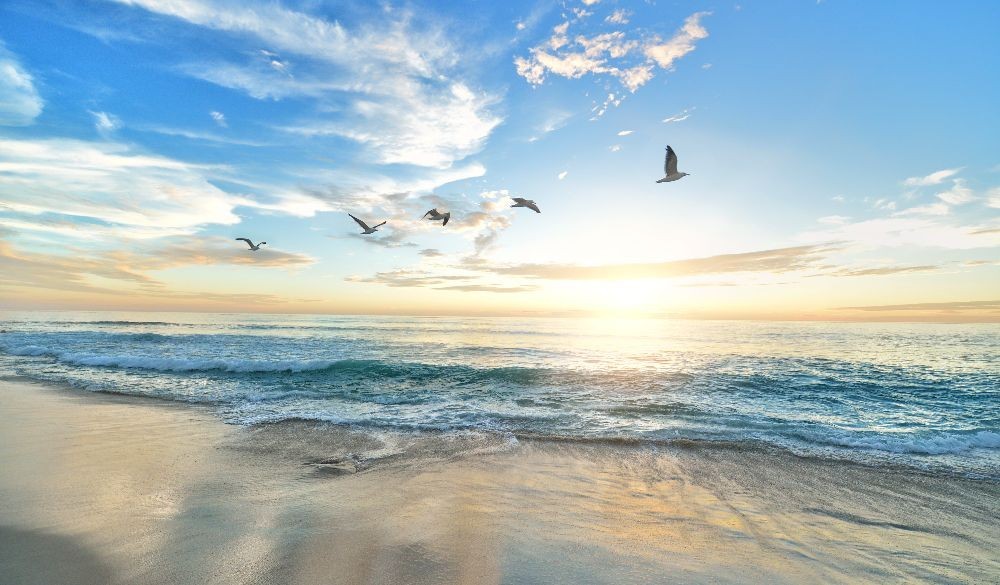When you gaze across the shimmering Mediterranean at the end of yet another perfect day, toasting the sunset with a cocktail or two, it’s easy to reflect that living by the sea is the best decision that you have ever made. And that feel good factor isn´t solely down to the sundowner that you are enjoying.
The latest research proves that living on the coast has considerable health benefits.
This should not come as a huge surprise. Since the 18th century, doctors have prescribed time by the sea for various ailments, from tuberculosis to leprosy. Patients would immerse themselves in the mineral-rich sea waters, while the rhythmic sounds of crashing waves helped them enjoy restorative sleep. While many of these early therapeutic claims have been discredited, modern science continues to prove that time spent in nature significantly enhances overall well-being.
In 1984, a landmark study revealed that post-operative patients who had views of nature from their hospital rooms experienced shorter stays and more positive outcomes than those whose views were limited to brick walls. This resulted in scientists focusing on understanding why humans are innately drawn to the outdoors. Initially concentrated on green spaces, recent research has begun to explore the profound effects of “blue spaces”—coastal areas and bodies of water.
One of the pioneers in this burgeoning field is Mat White, an environmental psychologist and passionate surfer. A 2010 study led by White revealed that people found images of natural environments with water elements as more attractive and restorative. This influential research catalysed the blue space movement, prompting investigations into what happens to our bodies and brains when we spend time at the beach.
As you step onto the sand, a phenomenon known as “attention restoration” is triggered. Environmental psychologists describe this state as a moment when your mind starts to relax, allowing you to engage with your surroundings in a more gentle, less demanding way.
White’s research, which analysed responses from over 4,000 individuals in England, found coastal environments evoked feelings of restoration more effectively than woodlands or mountains.
Catherine Kelly, author of “Blue Spaces: How and Why Water Can Make You Feel Better” suggests that the combination of sea views and the sound of waves, effortlessly focuses our attention to the horizon. This experience of being in the presence of something vast helps us gain perspective on our problems and feel connected to something greater than ourselves. Awe has been shown to lower stress levels, foster a sense of purpose, and encourage selfless behaviour.
According to the Attention Restoration Theory, the most restorative landscapes are those that are “softly fascinating.” They capture our attention without overwhelming us, allowing our minds to unwind. Waves epitomise this balance, continuously drawing our gaze and grounding us in the moment.
As well as the mind, the body also benefits from living by the sea. Coastal environments naturally encourage physical activity—whether it's a long walk along the shore, a refreshing swim, or a spot of kite-surfing. Though green spaces may facilitate more intense exercise, research indicates that individuals engage in longer periods of physical activity in blue spaces. A 2020 study found that time spent by the water is perceived as more expansive, leading to extended workouts and all the accompanying health benefits. This interplay between physical activity and stress relief from coastal environments may significantly enhance sleep quality. A comprehensive 2024 analysis encompassing nearly 19,000 adults across 18 countries found that frequent visits to both blue and green spaces correlate with a lower likelihood of insufficient sleep—defined as less than six hours a night. And although there is no direct link between a landscape's effects and pain reduction, evidence suggests that spending time by the water can diminish feelings of pain and elevate overall well-being.
So next time you find yourself on the beach watching the sunset, you can reflect on the fact that spending time by the sea is not just a indulgent pastime; it is an essential component of a balanced and healthy life. And you can raise a glass to that!






